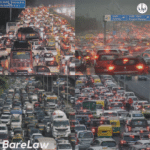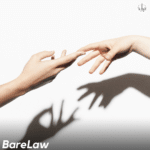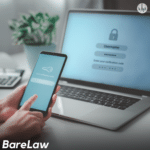
Synopsis
In India, the sharing of private multi media content may range from causing horrendous emotional and social damage to its victims. This article deals with the problems that men and women experience when their privacy is violated this way, whether it is stigma, psychological trauma or career trouble. The guide is full of immediate action steps, legal recourse under Indian law and help in finding support. The article focuses on specific sections of the Information Technology Act and the Indian Penal Code and empowers victims to take action for justice, and provide resources for healing and progressing forward.
What You Can Do If Your MMS Gets Leaked
MMS leaks occur when you share private multimedia content, and they can be distressing and traumatic. Such privacy has deep cultural roots in India, where both men and women face huge difficulties when their private content is leaked without consent. This article takes a deep dive into the difficulties the victims face, effective solutions, and the legal recourse available in India to help both men and women cope with the tiring things.
Challenges Faced by Victims
- Emotional and Psychological Impact: Victims are often left feeling violated, vulnerable and anxious after a release of private content. Victims can feel ashamed, angry, depressed, and horrible—suicidal thoughts are not even inconceivable. The Cyber Peace Foundation’s 2018 study on Indian cybercrime shows that 62 per cent of such victims experienced long-term psychological distress, and many feared being judged or ostracized by their social groups.
- Social Stigma and Gender-Specific Judgment:
- For Women: Women often face intense societal scrutiny and victim blaming today. In some cases, victims go as far as being excluded by their own families and socially ostracized. A 2021 Center for Cyber Victim Counseling report found that women victims frequently experience more judgment on the amount of 17 per cent of surveyed women reported having been shamed by their communities.
- For Men: Men also feel stigma, though it may look different. Men may be downplayed as a serious issue in society and, in some cases, as masculine. This limits the seriousness of what they go through, preventing them from seeking help. Studies even show that males are less likely to report incidents because of society’s perception of them.
- Cyberbullying and Harassment: That leaked content could spread very quickly across a whole range of platforms for that victim to suffer online abuse and threats and sometimes immediate blackmail. In 2019, a Symantec survey found that nearly 44% of Indian cyberbullying victims were forced to face harassment after their private content was unauthorized released.
- Career Implications and Professional Repercussions: It can ruin a victim’s professional reputation, including future job possessions. It can discriminate against men and women because employers may consider the incident a liability. This further presents a challenge as few policies address such issues in Indian workplaces.
- Lack of Awareness and Accessibility: Most victims are unaware of their rights or of the legal remedies open to them. Moreover, the recovery process is further complicated by the lack of accessible legal and psychological support in rural or areas of lesser development.
Immediate Steps to Take
- Seek Immediate Emotional Support: Find a trusted friend, family member, or mental health professional to contact for support. Speaking with someone who can reassure you and help you process your feelings is important.
- Document Evidence and Report the Incident: Screenshot any leaked content, messages, posts, or other communications. In India, cybercrime complaints can be filed at local police stations or online via the Cyber Crime Portal (https://cybercrime.gov.in/). The first important thing is to register a First Information Report (FIR), or in this case, an E-FIR, because this formally records the complaint, which kicks off the legal process.
- Contact Social Media Platforms: Flag illegal content using the platform’s reporting features. Facebook and Instagram have procedures for reporting revenge porn and other non-consensual images. However, platforms usually remove harmful material within 24-48 hours.
- Notify Cyber Cells: Cyber cells work in the police department in some of India’s major cities. These specialized units are there to help victims further support and guide them.
Legal Aspects and Rights in India
India has specific laws to protect individuals from privacy violations and to provide justice to victims of unauthorized content distribution:
- Information Technology (IT) Act, 2000 (Amended 2008):
- Section 66E: This section addresses the criminal offence of capturing, transmitting or publishing a private image where the person captured, transmitted or published does not consent. The offender can be punished with up to three years in jail or a fine of up to ₹2 lakh.
- Section 67A: The first section is about sexually explicit content transmission or publishing. First offenders may be sentenced to up to five years of imprisonment with a fine of up to ₹10 lakh.
- Indian Penal Code (IPC), 1860:
- Section 354C: The voyeurism clause is this part of the section, which punishes the act of capturing or sharing an image of a person without his consent. It is generally directed at women, although it has also been employed against men.
- Section 292: The obscene material distribution of this law is on both sexes. It provides a jail term of up to two years and or a fine.
- Section 509 deals with protecting a woman’s modesty and privacy and penalizing acts that insult or violate her privacy. Like most parts, these parts are generally meant to be applied to women and could be extrapolated (by me) to men in similar situations.
- Section 499 will address defamation, which in many cases will be important if the content leaked tarnished the victim’s reputation.
- Protection of Children from Sexual Offenses (POCSO) Act, 2012: This is a stringent law; however, if the content relates to minors, they may be jailed for up to 7 years and be charged with a fine.
- Indecent Representation of Women (Prohibition) Act, 1986: Although intended to deal with the portrayal of women, the act also applies to women victims. It prohibits indecent representation through any form of media.
- Right to be Forgotten: The right to be so forgotten is not yet codified but is increasingly accepted by Indian courts. This right is also at stake in the Delhi and Karnataka High Courts, which have upheld this right and ordered victims to be able to take harmful content down from online platforms.
Solutions and Long-Term Measures
- Seek Legal Assistance: If you’re considering filing complaints or representing yourself in court, consult a cyber lawyer. Still, you can draft out legal cease-and-desist orders to speed content removal.
- Therapy and Support Groups: The emotional toll of all this can be emotionally taxing, and engaging with some mental health professionals can offer strategies for getting through this. The Center for Cyber Victim Counseling and Cyber Peace Foundation have resources specifically for cybercrime victims that help victims deal psychologically with the aftermath.
- Improved Digital Literacy: Knowing about digital security will prevent future incidents. You can make yourself safer online by being cautious about what you share privately, using strong passwords, and turning on two-factor authentication on accounts.
- Advocacy and Awareness: Promoting supporting campaigns and organizations that speak up for victims’ rights and about digital privacy and consent will help create a bigger, better, and more supportive society. The National Commission for Women is running a campaign such as ‘Digital Shakti’ to educate people about digital safety.
- Collaborating with Cyber Cells and NGOs: The National Cyber Security Coordination Centre (NCSC), for example, works to create awareness and help victims. Content Removal can be accelerated by working with cyber cells or NGOs to get additional support. Support.
Conclusion
For men or women, it is, however, hard to deal with the impact of MMS leaks in India. However, there are legal routes, support systems, and preventative measures to help victims regain their privacy and dignity. Awareness of your own rights, how to seek the right legal and emotional support, and how you can tirelessly advocate for a more empathetic society, there is still a path forward towards such a violation in your life. We hope you remember that no one deserves to have their privacy broken, and justice is within your reach.
FAQ
Increase your digital security through strong passwords, two-factor authentication, and cautious sharing practices. Digital literacy programs and resources from NGOs and cyber safety
What should I do immediately after discovering my MMS has been leaked?
Document all evidence, such as screenshots, and seek emotional support from someone you trust. Report the incident through India’s Cyber Crime Portal or at your local police station, and notify the platform where the content was shared so that it can be removed.
What legal rights do I have if someone leaks my MMS without consent in India?
India’s IT Act, IPC, and other laws protect against unauthorized private content sharing. Sections 66E, 67A, and 354C of the IT Act and IPC penalize offenders with fines and imprisonment. Additionally, the “Right to be Forgotten” can be requested through Indian courts.
Can I report the leak anonymously?
While official FIRs require your identity, India’s Cyber Crime Portal allows you to file complaints anonymously. However, providing detailed information can strengthen your case.
What social challenges might I face as a victim, and how can I cope?
Victims often face stigma, judgment, and even social ostracism, particularly in conservative societies. Both men and women can experience different types of victim-blaming. Seeking therapy and support from organizations like the Cyber Peace Foundation or CCVC can help manage the emotional impact.
What can I do if the leak affects my career?
Document any instances of workplace discrimination and consider speaking with a lawyer for advice on addressing career-related repercussions. Depending on the circumstances, legal action for defamation or harassment may be possible.
Is there any legal protection specific to women or minors in these cases?
Yes. Sections like 354C and the Indecent Representation of Women Act specifically address violations involving women. The POCSO Act provides strict penalties for cases involving minors.
How can I prevent such incidents in the future?



